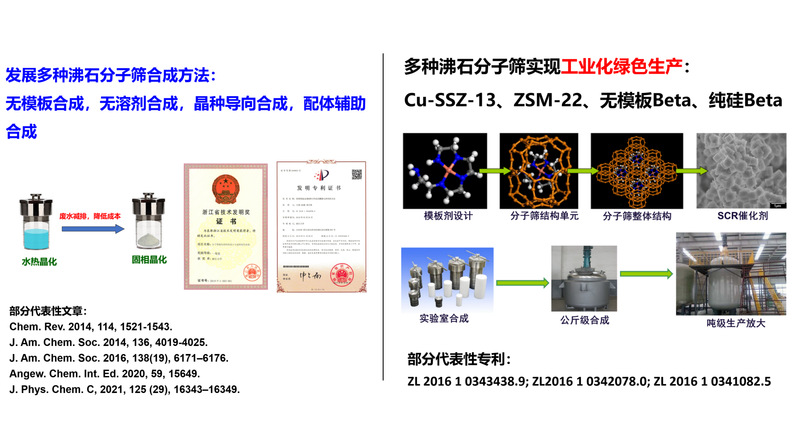Crystalline zeolites with pore sizes typically at 0.4-1.2 nm are one of the most useful sorbents, catalysts and ion-exchange materials in industrial processes due to their large surface area and adsorption capacity, uniform and intricate channels, high thermal and hydrothermal stabilities, and well-defined micropores.
Notably, modern synthesis methodologies for preparing zeolites or zeolite-like materials typically involve the use of organic molecules that direct the assembly pathway and ultimately fill the pore space. The use of organic template has obvious disadvantages such as relatively high cost of organic template and the harmful gas produced during the removal of the template normally carried out by high temperature combustion.
Recent yeras, we have developed several organotemplate-free routes for synthesizing zeolites such as ZSM-5, Beta, ZSM-34, ECR-1 etc, which normally require the presence of organotemplates in the synthesis. Organotemplate-free routes for synthesizing zeolites are of great potential industrial applications due to the low-cost, energy-saving, emission-reduction and consequent huge economic benefits.
分子筛材料作为以石油炼制为代表的若干重要过程中的核心催化材料,传统水热合成沸石分子筛产生大量废气与废水。为此,团队深入理解沸石晶化过程,基于“固相自发扩散和晶种诱导成核”的指导思想,改变传统沸石合成体系,发展多种沸石分子筛合成方法,如无模板合成,无溶剂合成,晶种导向合成,配体辅助合成等,实现ZSM-22、无模板Beta、纯硅Beta等沸石工业化绿色生产。


